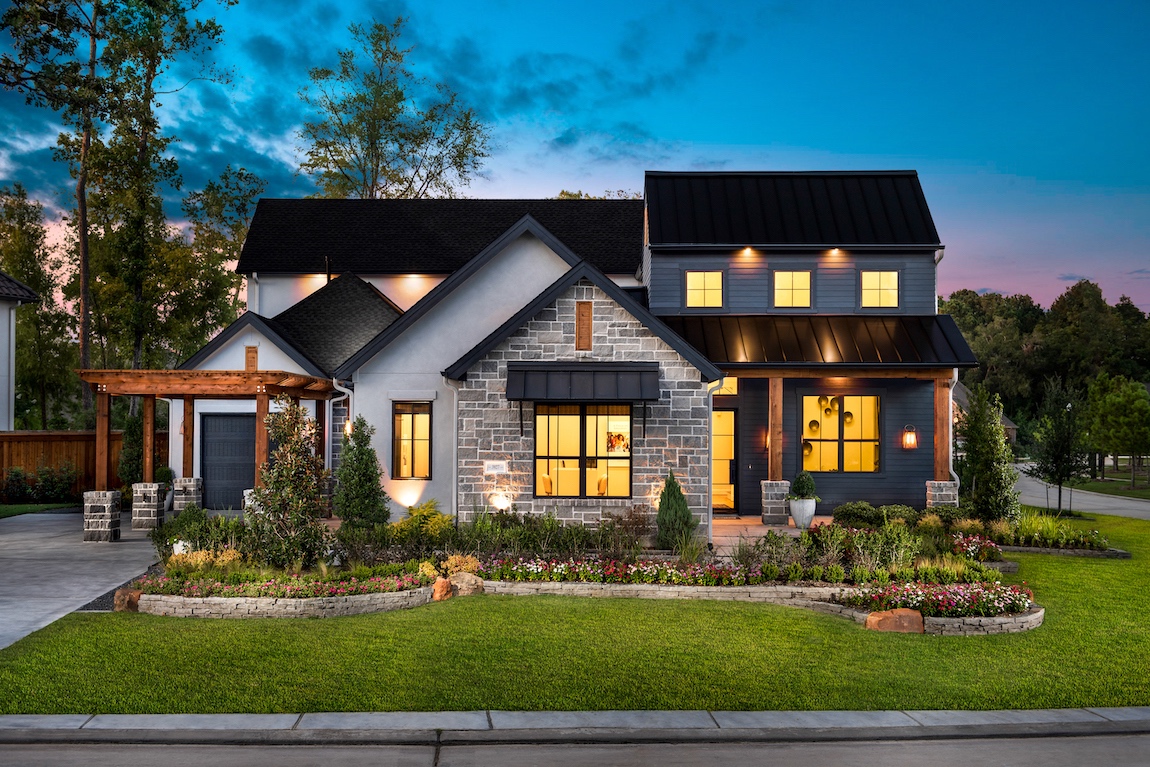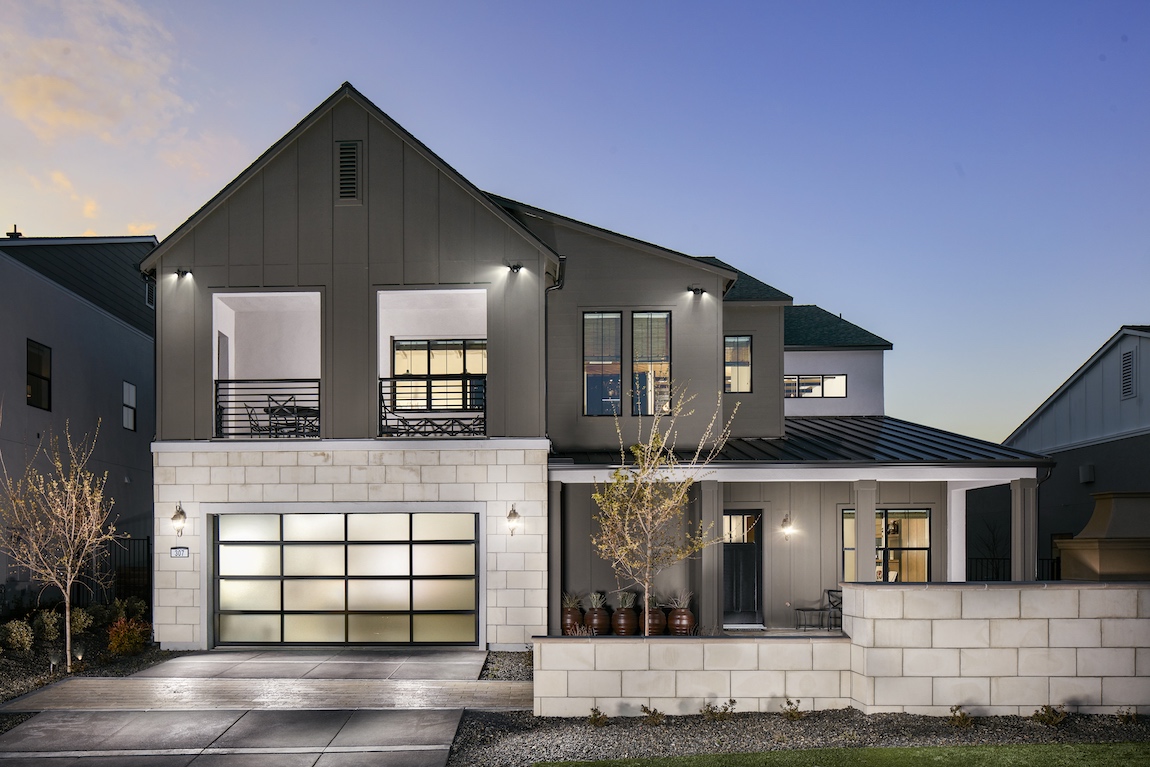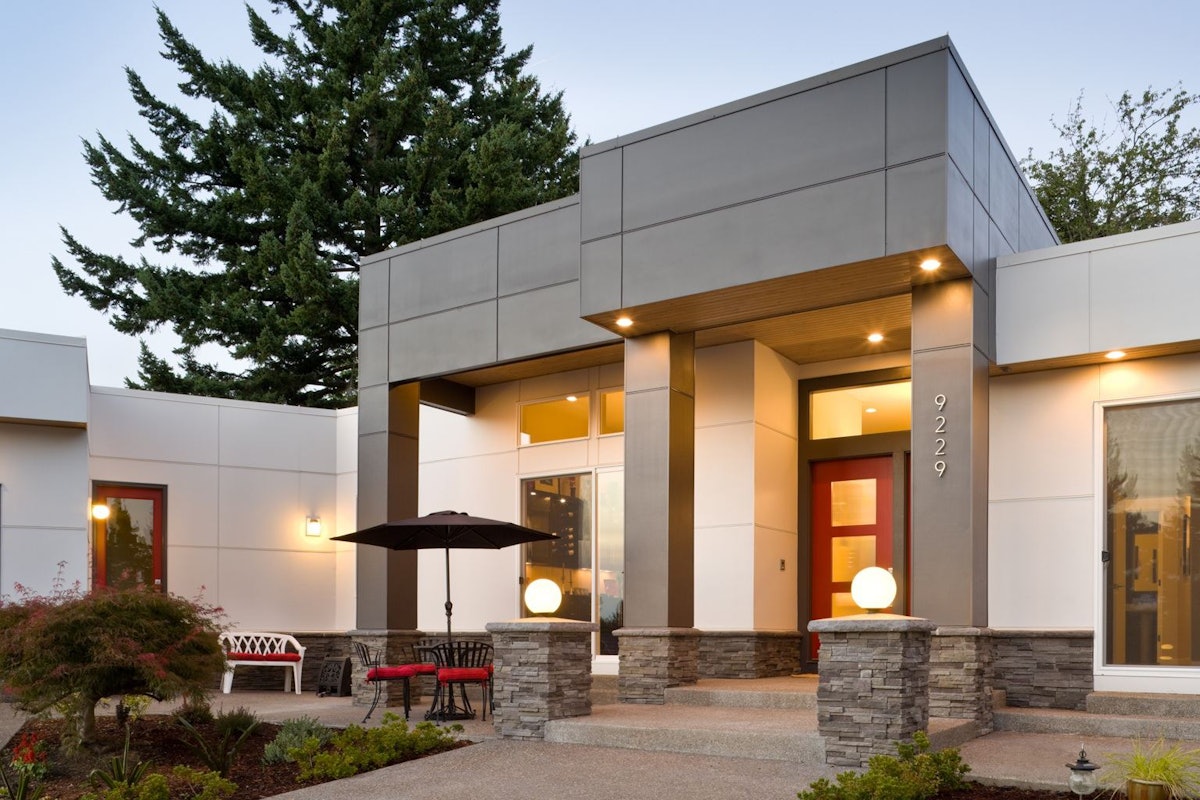Absolutely! Here’s a 3000-word article on modern house exterior lighting, incorporating your request to use `
` and `
` tags instead of “.
The exterior of a modern home is a canvas, and lighting is the artist’s brush. It’s not just about visibility; it’s about creating an ambiance, enhancing architectural features, and ensuring safety. Modern exterior lighting design blends functionality with aesthetics, transforming a house into a welcoming and visually stunning space.

Before diving into specific techniques and styles, it’s crucial to grasp the core principles that guide effective exterior lighting:
Layering Light: This involves combining different types of lighting to create depth and visual interest.
Modern exterior lighting encompasses a wide range of fixtures and techniques, each serving a specific purpose.
Path Lighting: Guiding the Way

Path lighting is essential for safety and wayfinding. It illuminates walkways, driveways, and garden paths, preventing trips and falls.
Recessed Path Lights
These lights are installed flush with the ground, providing a subtle and unobtrusive glow. They are ideal for minimalist designs.
Bollard Lights
Bollard lights are freestanding fixtures that provide a wider spread of light. They are suitable for larger pathways and driveways.
Step Lights
Step lights are integrated into stair risers or retaining walls, enhancing safety and adding a touch of elegance.
Facade Lighting: Showcasing Architectural Beauty

Facade lighting focuses on highlighting the architectural features of a home’s exterior.
Up-Lighting
Up-lighting involves placing lights at the base of a wall or architectural element, directing light upwards. This technique emphasizes vertical lines and textures.
Down-Lighting
Down-lighting involves placing lights above architectural elements, directing light downwards. This technique creates a soft, ambient glow and highlights horizontal features.
Wall Washers
Wall washers provide a uniform spread of light across a wall, emphasizing its texture and color.
Accent Lighting
Accent lighting highlights specific architectural details, such as columns, arches, or decorative elements.
Landscape Lighting: Enhancing the Outdoor Environment
Landscape lighting extends the living space beyond the walls of the home, creating a welcoming and inviting outdoor environment.
Tree Lighting
Tree lighting involves placing lights in trees, creating a dramatic and enchanting effect. Up-lighting emphasizes the canopy, while down-lighting creates a moonlit effect.
Garden Lighting
Garden lighting highlights flowerbeds, shrubs, and other landscape features. It adds depth and dimension to the garden, creating a magical atmosphere.
Water Feature Lighting
Water feature lighting enhances the beauty of pools, fountains, and ponds. Underwater lights create a mesmerizing effect, while surface lights highlight the water’s movement.
Security Lighting: Protecting Your Home
Security lighting deters intruders and enhances safety.
Motion-Activated Lights
Motion-activated lights turn on automatically when motion is detected, deterring intruders and providing instant illumination.
Floodlights
Floodlights provide a wide beam of light, illuminating large areas. They are ideal for driveways, backyards, and other open spaces.
Perimeter Lighting
Perimeter lighting creates a continuous ring of light around the home, enhancing security and visibility.
Modern Lighting Design Trends
Modern exterior lighting design is constantly evolving, with new trends and technologies emerging.
Minimalist Design
Minimalist lighting focuses on clean lines, simple shapes, and subtle illumination. Recessed lights, linear fixtures, and integrated lighting are popular choices.
Warm White Light
Warm white light (2700-3000K) creates a cozy and inviting atmosphere. It is ideal for residential settings.
Smart Lighting Systems
Smart lighting systems allow homeowners to control their exterior lighting remotely, using smartphones or voice commands. They offer features such as scheduling, dimming, and color changing.
Sustainable Lighting
Sustainable lighting focuses on energy efficiency and environmental responsibility. LED lights, solar-powered fixtures, and motion sensors are popular choices.
Integrated Lighting
Integrated lighting involves incorporating lighting fixtures into architectural elements, such as steps, railings, and walls. This technique creates a seamless and cohesive look.
Choosing the Right Fixtures and Bulbs
Selecting the right fixtures and bulbs is essential for achieving the desired lighting effect.
Fixture Materials
Exterior lighting fixtures should be made from durable materials that can withstand the elements. Aluminum, stainless steel, and brass are popular choices.
Bulb Types
LED bulbs are the most energy-efficient and long-lasting option. They are available in a wide range of colors and brightness levels.
Color Temperature
Color temperature is measured in Kelvin (K). Warm white light has a color temperature of 2700-3000K, while cool white light has a color temperature of 4000-5000K.
Brightness
Brightness is measured in lumens. The appropriate brightness level depends on the specific application.
Installation and Maintenance
Proper installation and maintenance are essential for ensuring the longevity and performance of exterior lighting systems.
Professional Installation
It is recommended to hire a qualified electrician to install exterior lighting systems.
Regular Maintenance
Regular maintenance includes cleaning fixtures, replacing bulbs, and checking wiring.
Weatherproofing
Exterior lighting fixtures should be weatherproofed to prevent damage from rain, snow, and other elements.
Planning Your Exterior Lighting Design
Planning is crucial for creating an effective and visually appealing exterior lighting design.
Consider Your Home’s Architecture
The lighting design should complement the architectural style of the home.
Identify Key Features
Highlight the unique features of the home, such as architectural details, landscaping, and water features.
Create a Lighting Plan
Develop a detailed lighting plan that includes the types of fixtures, their placement, and the desired lighting effects.
Test and Adjust
After installation, test the lighting system and make any necessary adjustments to achieve the desired effect.
Modern house exterior lighting is a powerful tool for enhancing the beauty, security, and functionality of a home. By understanding the fundamentals of lighting design, choosing the right fixtures and bulbs, and planning carefully, homeowners can create a stunning and inviting outdoor environment. From guiding pathways to highlighting architectural features, exterior lighting transforms a house into a captivating and safe haven. The strategic use of modern technology, such as smart systems and energy-efficient LEDs, ensures that exterior lighting is not only beautiful but also sustainable. By layering light, emphasizing key elements, and integrating security features, modern exterior lighting elevates the home’s aesthetic and provides a warm welcome for all.



